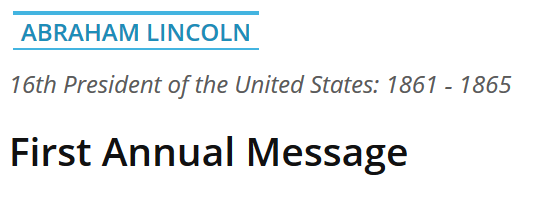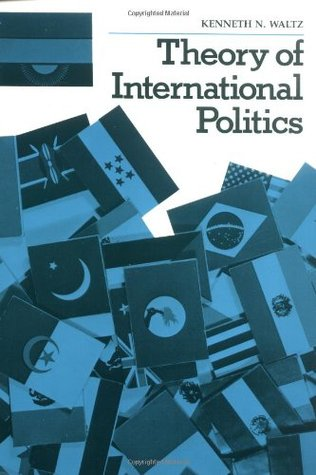
Few events truly change the course of history.
Yesterday marked the 80th anniversary of one such event: Operation Barbarossa - Nazi Germany's invasion of the Soviet Union.
How did it change history?
[THREAD]
Yesterday marked the 80th anniversary of one such event: Operation Barbarossa - Nazi Germany's invasion of the Soviet Union.
How did it change history?
[THREAD]

This is NOT a thread on whether the Soviet Union or USA or UK defeated the Nazis.
The answer is obviously, "yes"!
The answer is obviously, "yes"!
https://twitter.com/JHWeissmann/status/1403179867479347202
Suffice it to say that this was (and remains) the largest land battle in history
https://twitter.com/WWIIpix/status/1407230157883121670
If you DO want operational details about the battle, there is excellent coverage elsewhere, such as in this nice overview from the @I_W_M...
iwm.org.uk/history/operat…
iwm.org.uk/history/operat…
Instead, this is a thread about what MIGHT have been.
What would have happened if Hitler (& the decision really was Hitler's alone) had chosen NOT to invade the Soviet Union?
What would have happened if Hitler (& the decision really was Hitler's alone) had chosen NOT to invade the Soviet Union?

The consensus view, as @drfarls shared in this recent @TheNatlInterest piece, is that the operation was doomed to fail: once the invasion had started, it was really just a matter of time (given the typical Soviet war strategy) before Germany lost.
nationalinterest.org/blog/reboot/co…
nationalinterest.org/blog/reboot/co…
Indeed, the decision to invade the Soviet Union is Chapter 7 of this 2014 @rand report title "Blinders, Blunders, and Wars"
rand.org/pubs/research_…
rand.org/pubs/research_…
Hence, Hitler shouldn't have done it. That leads to two question:
1) Is there a scenario where Nazi Germany DOES NOT attack the Soviet Union?
2) If Nazi Germany DOES NOT attack the Soviet Union, what happens?
1) Is there a scenario where Nazi Germany DOES NOT attack the Soviet Union?
2) If Nazi Germany DOES NOT attack the Soviet Union, what happens?
Regarding the first question, it is tough to imagine a scenario where Hitler does NOT attack the Soviet Union.
He had remarked to the League of Nations high commissioner to Danzig, Carl Burkhardt, in August 1939: "Everything I undertake is directed against Russia."
books.google.com/books?id=Ya8gA…
books.google.com/books?id=Ya8gA…
But could he have been convinced otherwise? Possibly. Consider the views of Franz Halder, the German Army's chief of staff and the individual charged with planning the operation. 

He wrote in his diary on January 28, 1941: "Barbarossa: purpose not clear. We do not hurt the English. Our economic base is not significantly improved....If we are then tied up in Russia, a bad situation will be made worse."
amazon.com/Halder-Diary-1…
amazon.com/Halder-Diary-1…
The reality is that Germany could not afford a war of attrition. Economically speaking, it wasn't even a "Good Enough Great Power" (h/t @kath_stoner)
That is a key point @adam_tooze makes in his classic "The Wages of Destruction"
amazon.com/dp/B008DR6YXO/…
amazon.com/dp/B008DR6YXO/…
Rather than not invading at all, perhaps the Nazi's could have conquered key resource areas (like Ukraine) and then just held their position (given their already heavy loses and strains on their supply lines)?
amazon.com/Kiev-1941-Hitl…
amazon.com/Kiev-1941-Hitl…
Maybe. But with conquering the Soviet Union a key pillar of Hitler's world view (as he discusses at length in Mein Kampf), it seems unlikely he would let it go.
google.com/books/edition/…
google.com/books/edition/…
Now for the second question: what happens if Nazi Germany does not attack or the German Wehrmacht is not used in a way that bleeds it dry (i.e. if Hitler had listened more to Halder)?
First, there is possibly no Atlantic Charter, as Churchill and Roosevelt wouldn't have had the same incentive to meet in August 1941 (their meeting was prompted by fear that the Soviets would soon collapse)
history.state.gov/milestones/193…
history.state.gov/milestones/193…

Second, the attack itself, and the fact that Germany did not inform Japan (it's "ally"), led the Japanese government to execute its preferred policies of concentrating on Southeast Asia.
jstor.org/stable/2639132…
jstor.org/stable/2639132…

Indeed, a great "what if" of history is to consider if Japan had instead attacked the Soviet Union, thereby splitting the Soviet forces
nationalinterest.org/feature/the-ul…
nationalinterest.org/feature/the-ul…
Japan's actions led the USA to tighten its oil embargo. As @DanielYergin wrote years ago, we know how that ended.
washingtonpost.com/archive/opinio…
washingtonpost.com/archive/opinio…
US entry into the war, in turn, means US influence over the post-war settlements, thereby entrenching US hegemony (see @stephenwertheim)
amazon.com/dp/B08FGDS5GW/…
amazon.com/dp/B08FGDS5GW/…
No Post-War US Hegemony, possibly no United Nations...
https://twitter.com/ProfPaulPoast/status/1321418251381997571
...and maybe no "Liberal International Order".
Maybe no "Cold War" either? Well, let's not get too far ahead of ourselves (that's a thread for another time).
Maybe no "Cold War" either? Well, let's not get too far ahead of ourselves (that's a thread for another time).
In sum, there is a not crazy scenario where Hitler does not over extend Wehrmacht, Imperial Japan remains contained, and the United States does not fully enter the war.
But that scenario went out the window with Operation Barbarossa.
[END]
But that scenario went out the window with Operation Barbarossa.
[END]
Addendum 1: A couple great threads that built off of this thread.
First, @JeffDColgan zeros-in on OIL's role in motivating Hitler to invade the Soviet Union. Indeed, it's a key reason that Hitler and Hadler disagreed on the best plan for invading (Hitler was focused on securing oil fields; Hadler focused on Moscow)
https://twitter.com/JeffDColgan/status/1407727104951734278
Second, @richardmaass takes the counterfactual thinking to the extreme, laying out how, without Barbarossa, Europe likely remains multi-polar & decolonization does not take place (though I still think something *like* the Cold War takes place)
https://twitter.com/richardmaass/status/1407680138142171136
• • •
Missing some Tweet in this thread? You can try to
force a refresh













